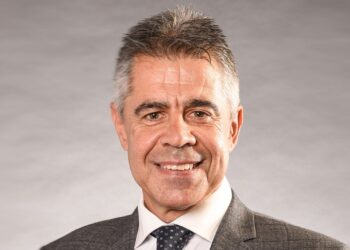Rest supports the proposed introduction of a new class of financial advice provider, it said in its submission to government on the retirement phase of superannuation.
The super fund, which boasts some 2 million members, believes funds play a “vital role” in providing “simple, accessible, valuable information” to empower members approaching retirement with greater confidence.
As such, following the legislative creation of a two-tier advice system, Rest plans to support its members by enhancing its current three layer advice system, which includes education and online calculators as layer one, followed by a digital advice tool as layer two. Layer three includes “personal advice” provided by “phone-based” advisers, incorporating collectively charged and individually charged advice.
Rest initially launched its digital tools suite in 2017, offering collectively charged, intra-fund advice on voluntary contributions, investment choice and insurance.
“It is vital that people can choose from a range of advice and guidance services, scaled in both complexity and cost,” the fund said.
“We believe that by removing current regulatory obstacles and improving communication and engagement with members, it is possible to facilitate the crucial shift in member mindset. This shift could lead to increased levels of engagement and confidence among retirees when it comes to planning their retirement and drawing down on their superannuation.”
In the submission, Rest argued that constraints that have been placed on funds’ ability to provide advice have led to anxiety among members and rash decision making in retirement.
While the Retirement Income Covenant clarified the balance between providing assistance and potentially contravening hawking restrictions, the fund said other major restrictions remain.
“Some remaining limitations include that under existing conditions for providing intra-fund advice, funds cannot take a member’s household circumstances, including income, superannuation, and debt, into account when providing guidance,” the fund said.
“This limits the effectiveness of this type of advice.”
As such, Rest sees it as crucial that advice topics that can be offered via collectively charged models are expanded.
“The proposed expansion of the advice topics that can be offered via the collectively charged advice model will allow Rest to provide more impactful and beneficial retirement advice, including being able to consider household circumstances, being mindful of the cost and model, and Rest’s overall obligation to act in the best financial interests of members,” the fund said.
Moreover, on the proposed introduction of a new class of financial advice provider, Rest said: “These new advice providers could be an effective avenue to assist members who are adopting digital advice to validate any concerns with a human adviser before proceeding with the implementation process.”
Citing Investment Trends data, Rest said only 11 per cent of Australians aged 55–64 are likely to implement digital advice without validating with a human adviser.
Additionally, the fund suggested that, to support retirement planning engagement, the government should communicate with all Australians prior to reaching age pension age, providing guidance on how to apply and where to go for help, such as Financial Information Service (FIS) officers or financial advisers.
“This approach would prompt more individuals to apply for the age pension and potentially seek advice about their retirement needs,” the fund said.
In December, Financial Services Minister Stephen Jones said he supports the creation of a new class of financial advice providers, essentially granting funds, banks, and insurers the ability to give customers personal advice.




Will they have to pay the ASIC Levy like the rest of us???
This move by Rest of supported by legislation, will demean qualified advisers who have worked so hard to achieve a professional standard recognised in the community.
Two classes of financial adviser. (1) Product adviser who charges $500, and (2) Independent adviser who charges $5,000. There is a market for both. Confusion for the consumer highly unlikely. But this would likely need a fair bit of clearing up in the back end in terms of licensing, authorisations, BID, etc.
Product Adviser who charges $500 via HIDDEN COMMISSIONS Charged to Every Member via Collective Charging when 90% of Industry Super members are paying these HIDDEN COMMISSIONS FOR NO SERVICE.
Add the that, Single product only sales via Uneducated, Unqualified Back Packer Call Centres.
RC 2.0 here we come.
With collective charging – how much can the trustee charge?
Seems like a great way for a product provider to subsidise the delivery personal advice?
Last time I looked, ASIC was still hot on fee-for-no-service. Collectively charging members for services they might not want or use is fee-for-no-service
Royal commission 2.0 loading!
If they are going to give “personal advice” then they better also provide a SoA, all disclosure documents, do file notes, meet all the code of ethics, etc.
If this is not a level paying field, then the current 15000 licensed advisers should collectively take legal action.
They do now. Hot tip – why not try the service yourself and see what you get rather than just make comments on uninformed opinions.
Conflicted much??? Vertigal Integration is alive and well
it’s as if we never had a royal commission and didn’t uncover widespread fee for no service issues in big corporate institutions. Now they’re proposing fee for no service across their client base and not even trying to hide it. How is that in the best interest of members?
Do super funds have a role to play in providing very simplistic, basic advice? Probably yes, but it should be phrased correctly such as ‘restricted advice agent’. Will the big super funds inevitably stuff up more complex personal advice? Probably yes, especially if unqualified agents are providing the advice.
Unfortunately there is no way on earth the FUNDS are going to allow their advice teams to be given a boxy title when they are trying to get away with the qualified one.